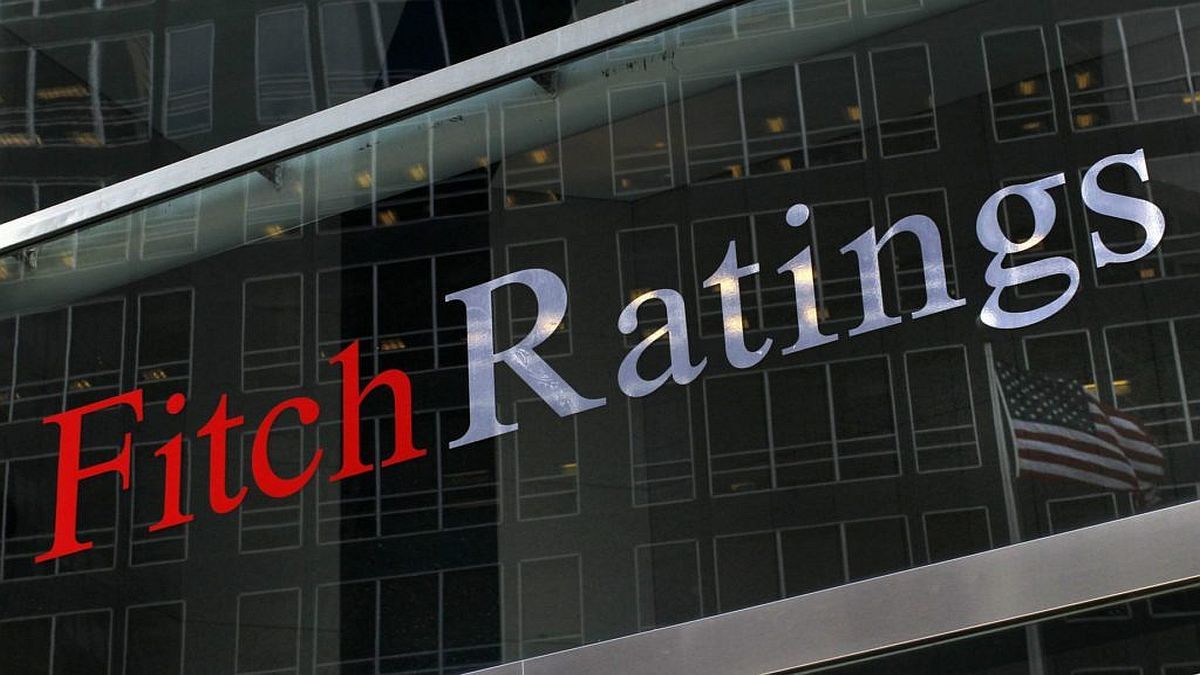The risk rating agency Fitch has just assigned Argentina a ‘CC’ grade. This means that, in the opinion of the consultant, “a bond restructuring or other default event of some type appears likely in the coming years”. According to the firm’s statement, this is due to the “persistent uncertainty about the sovereign’s ability to achieve a sustained accumulation of international reserves and recover the access to markets of global capital and, therefore, make large payments on foreign currency bonds that mature in the coming years.
Says Fitch: “Javier Milei’s administration has made initial progress on economic adjustments since taking office in December 2023, through executive actions rather than laws. However, Achieving lasting adjustment sufficient to build reserves and regain market access may also require broader political support and reforms, which remains to be seen. while growing tensions in the new policy mix increase uncertainty.”
In political matters, analysts from the rating agency maintained that Milei’s economic plan focuses on an “aggressive fiscal adjustment,” to “end the monetary financing of the central bank (BCRA) and undo past financing, and a devaluation monetary parity of 54% followed by a moving parity of 2% monthly to anchor price expectations.” Furthermore, he maintained that monetary policy “has been unorthodox, involving deeply negative real interest rates to reduce the supply of pesos and other BCRA liabilities”. At the same time, they describe that for now, “exchange controls have been maintained to sustain this combination of policies. These efforts have been initially successful, narrowing the gap between official and parallel exchange rates, reducing inflation after a post-devaluation jump, and encouraging a nascent credit recovery.”
Fitch warns of “obvious” tensions
However, Fitch mentions “tensions” within the “policy mix” that are “becoming evident.” He maintains that “The mobile peg has allowed a rapid real revaluation of the peso and may be difficult to sustain, which could weaken its effectiveness as an anchor for price expectations”. On another note, he notes that “an exit strategy from exchange controls and negative real interest rates is still unclear, and these policies could undermine confidence the longer they remain in place.”
“Inflation may face further resistance after falling to around 5% in Maydue to economic recovery, wage indexation and political uncertainties,” the report states.
Regarding reserves, he maintained that although policy changes have allowed the BCRA to buy US$17.3 billion in the foreign exchange market from mid-December to May, “The sustainability of reserve accumulation is unclear, given that it has been made possible by deferring dollars owed to importers through the issuance of BOPREAL securities and through tighter restrictions on imports that are now expiring.””. Along these lines he marks an additional criticism: “the appreciation of the real peso and the economic recovery could also boost import demand later in 2024. Currency purchases have already slowed sharply in recent weeks, despite the ongoing soybean harvest”.
Debt, payments and charges
Regarding future debt payments, he maintained that “these initial reserve gains should allow the sovereign to make bond payments in foreign currency for $4.3 billion due in 2024.” He although he mentions that “amounts owed will increase significantly to $9-10 billion in 2025-2027 and they will coincide with other payments from provinces and the BCRA (in BOPREAL). To meet these payments, the sovereign will likely need to achieve further reserve accumulation and also regain access to the international market to refinance a portion.”
“Fitch remains unsure whether Argentina will be able to achieve these objectives. Regaining access to markets may not only require greater macroeconomic adjustments, but also evidence of broader political acceptance and the preservation of social support. This may be particularly difficult to achieve before the midterm legislative elections in November 2025,” the rating agency says.
“The administration is pursuing the ambitious goal of reducing the fiscal deficit to zero by 2024, which requires an improvement of 5 percentage points of GDP in the primary balance to a 2% surplus. It is off to a good start, having achieved surpluses until April. Rising inflation has driven most of the improvement so far, dramatically eroding primary spending in real terms (-34%) and generating the largest pension savings. Other cuts have been more deliberate but may not be sustainable, such as the virtual elimination of capital spending. Part of the reduction in energy subsidies has come from non-payment to electricity companies,” he adds.
On the other hand, he mentions that “Ensuring lasting fiscal adjustment will eventually require a shift toward a more sustainable strategy, given the temporary nature of some of this year’s measures, lower inflation that is reducing the scope to compress spending in real terms and the economic risks posed by draconian cuts to elements such as capital spending. This may require greater cooperation with Congress through the budget process and may be more difficult to achieve.”
Regarding the ongoing economic recession, he pointed out that “economic activity fell drastically amid these policy adjustments, 6% year-on-year in March, but could stabilize in the second quarter and recover later in the year.” In this sense, he pointed out that “We project that the economy will contract 3.6% in 2024 and grow 3.9% in 2025, although this does not reflect a strong V-shaped recovery given a positive base effect after last year’s drought. Higher confidence and lower inflation should drive a recovery in consumption. “Fiscal adjustment will continue to be a drag, while private sector confidence may not be restored until capital controls are dismantled.”
Source: Ambito



